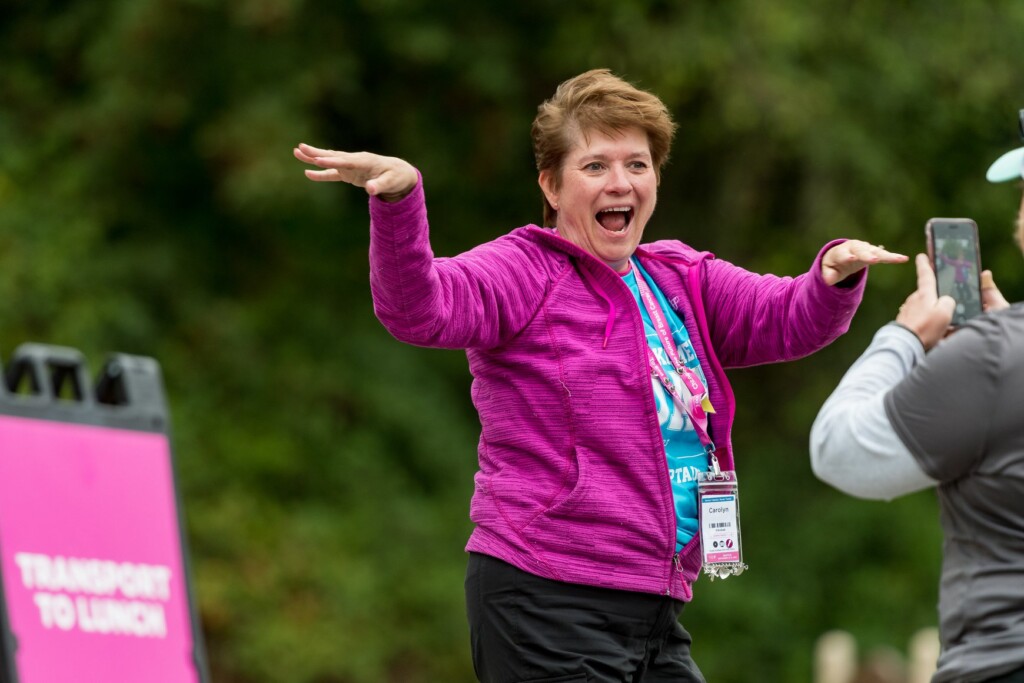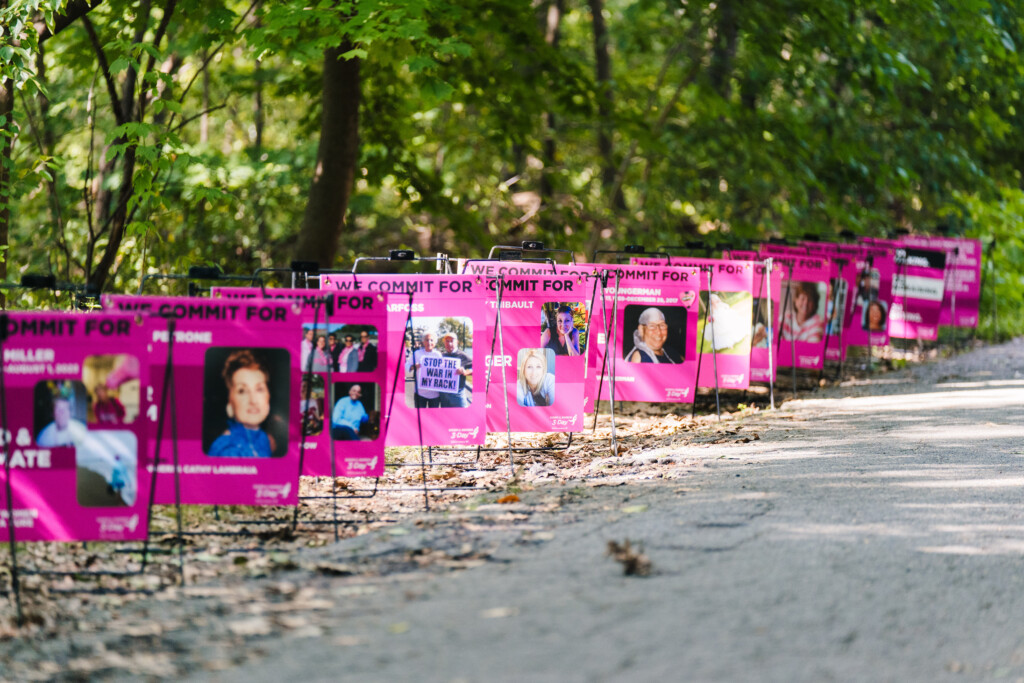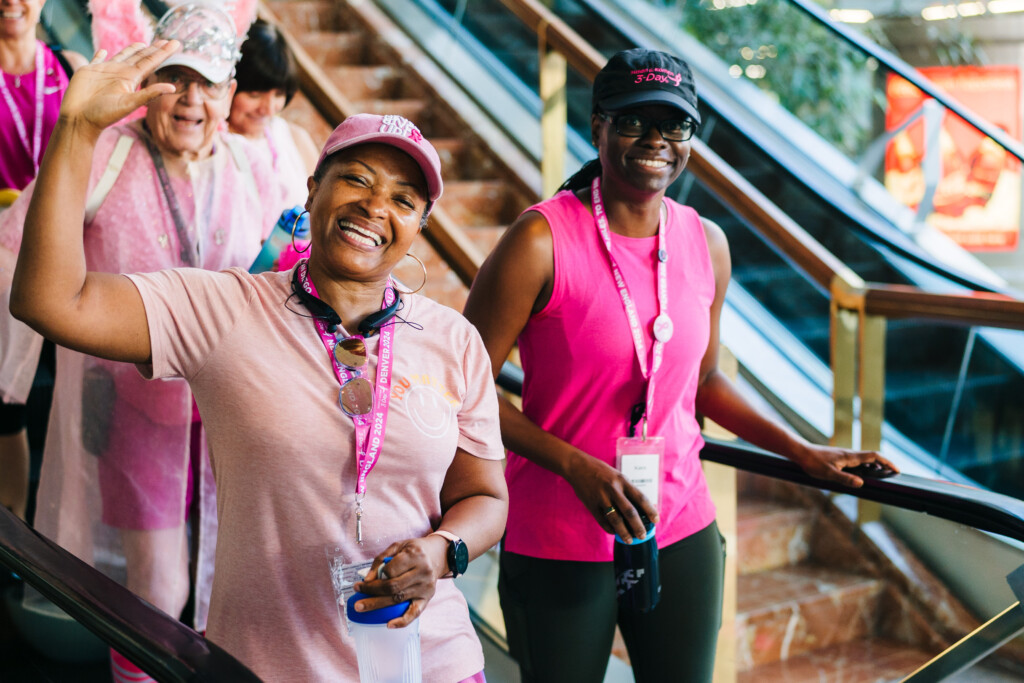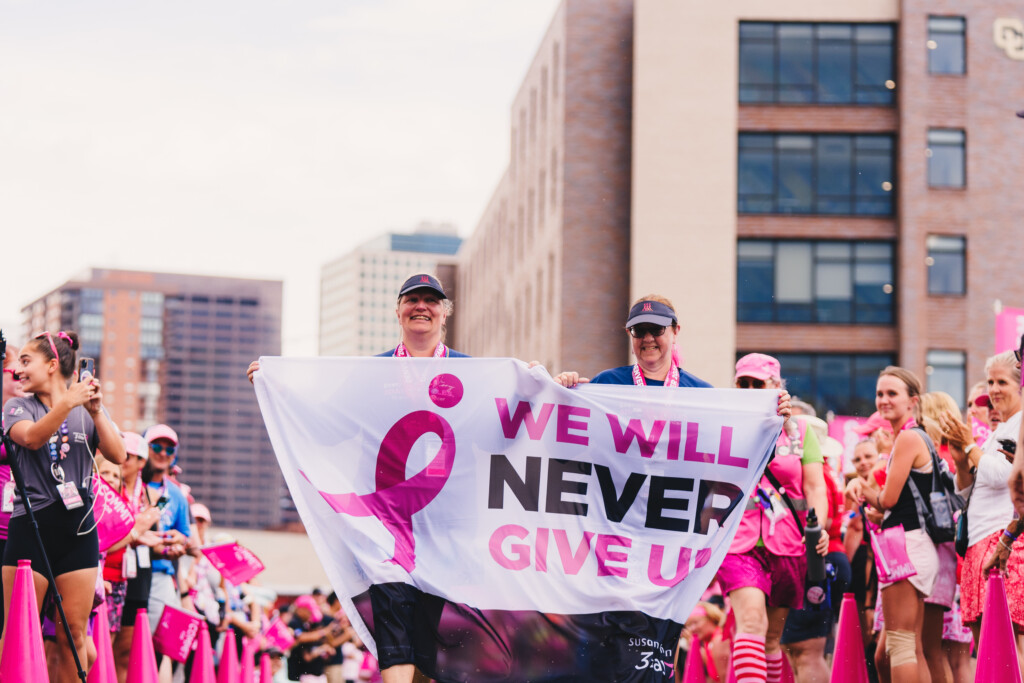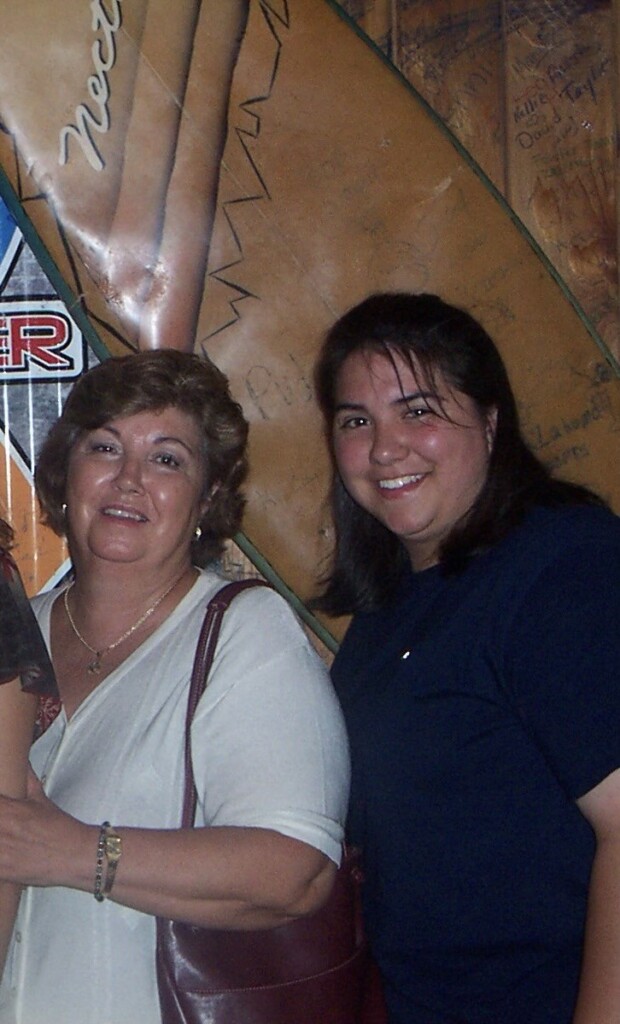Meet Carolyn H., our 2024 Denver Crew Impact Award Winner!
Since her first Susan G. Komen 3-Day® 14 years ago, Carolyn has participated 27 times and has raised a lifetime total of over $20,000. Not only is she one of the most selfless individuals you may ever meet, but she does it all as a thriver with the hope of creating a future without breast cancer.
“Within the Pink Bubble there lies a special glue which makes us shine a little brighter, lifts us up a bit higher, and brings grace to everything surrounding us; this glue is Carolyn. She is the best of the Komen 3-Day, and her compassion and kindness are legendary. She is there for all of us, all the time, and manages her teams with a savvy style and a unique, joy-filled spirit. Carolyn is a true asset to everyone here, especially me, and the world truly is a better place with her in it. We are a better event with her as a part of it, and I can’t imagine my world or the Pink Bubble without her.” —Kit L.
What was your inspiration to participate in your first 3-Day®???
I was asked by my friend Mary M. to co-captain a sweep team for the Denver event in 2010. I had no idea what the 3-Day was, let alone a sweep team, but I was game to learn and looking forward to spending time with Mary. That was it; I have been hooked on the Pink Bubble ever since. The people, the atmosphere, the stories of survival as well as the tributes for those who didn’t survive.
Although I am a thriver of breast cancer, I do not do this for me or that recognition; I do it so others, including my children and yours, won’t have to walk down that same breast cancer path. I have seen in the past 25 years great strides in the diagnosis, treatment and survival rate for breast cancer and how it trickles down to other cancers as well.
What has brought you back to the 3-Day year after year?
The people and the positive culture of the 3-Day; that Pink Bubble, as they say! I have the most incredible friendships with so many people I have met along the way including walkers, crew and staff. These people are my family, (especially my “Sistas” Mary & Janet) and if they need me for anything, I’m there at their beck and call and vice versa. I call the 3-Day the great equalizer; EVERYONE at the event is there to support, cheer, hug, and give love to everyone else. There is no distinction between our many differences. It’s how we want the world to be.
What is your favorite aspect of crewing the 3-Day?
I love helping walkers and my crew team to have the best experience of their life by giving them encouragement, understanding, and a lot of fun. Knowing I brought a smile or a sense of belonging to someone’s day is the best reward and I’m perfectly happy being behind the scenes.
What is your best advice to anyone crewing the 3-Day?
Be you, let go, and remember you are in a safe place. Have fun, be silly, cry, cheer, hug, and make a new friend each day; I can guarantee they will be lifelong friendships. Again, everyone is there for you, and you are there for them. Also, keep a Sharpie in your pocket, wear closed-toed shoes and a wide mouth water bottle is your friend as well.
What’s a fun fact about you?
Anyone on my crew team knows that singing is not my hidden talent, but that doesn’t stop me. I also grew up on a farm/ranch in Nebraska, ergo I learned how to double clutch tractors, combines and grain trucks. Although I now live in Denver, my husband and I have ownership in a herd of bison in Nebraska.
What are the most important lessons you’ve learned on the 3-Day?
I’ve learned a lot about leadership and teamwork including how to be flexible and handle unforeseen circumstances. I’ve learned that each person has their own individual journey they must travel, and I must be understanding, compassionate and accepting of that journey.
“At this moment, you are probably trying to slide into the background. But let the light shine on you for a few minutes just as your light has shined brightly for the 3-Day for many years.” —John H.
Congratulations, Carolyn! We are honored to have you as part of our Pink Bubble family.
